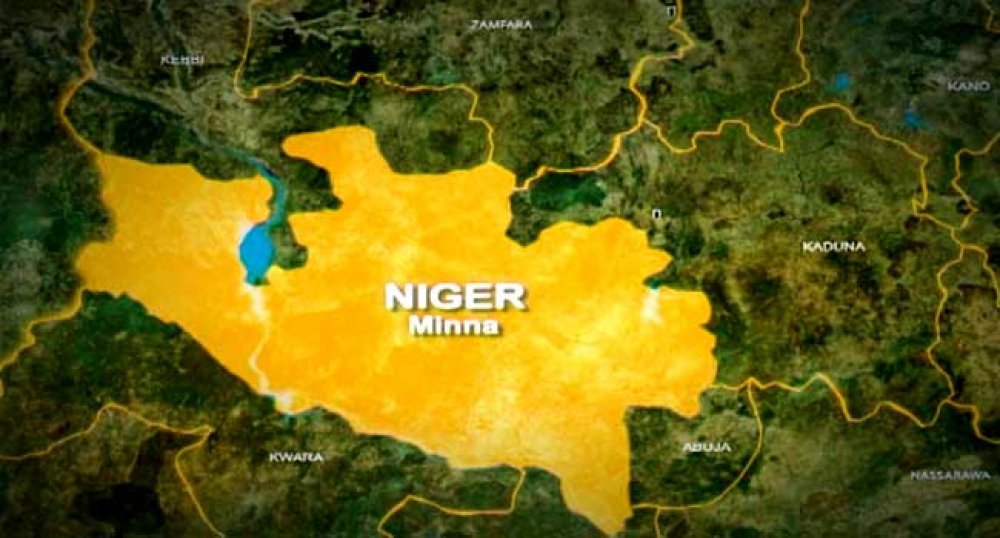
• Atiku: Tinubu’s loans bone-crushing to Nigerians
• LCCI: FG’s appetite for borrowing puts economy at risk
• CSOs back FG’s loan, say it’s key to Nigeria’s growth
Former Vice President Atiku Abubakar has slammed President Bola Tinubu’s appetite for loans following yesterday’s swift passage of the president’s fresh request to borrow N1.77 trillion (approximately $2.2 billion) in support of the N28.7 trillion 2024 budget.
This is as the Lagos Chamber of Commerce expressed strong concerns over Nigeria becoming the third highest debtor to the International Development Association (IDA), a part of the World Bank that provides grants and low-interest loans to help the world’s poorest countries.
With yesterday’s approval of Tinubu’s latest loan request to fund the remaining six weeks of this year, Nigeria’s total debt has hit an all-time high of N136 trillion.
In what would be a record set by the 10th National Assembly, the president’s request was immediately approved under 48 hours. The president conveyed his request in a letter written to Senate President Godswill Akpabio and Speaker of the House of Representatives, Tajudeen Abbas, and read by the presiding officers during plenary, on Tuesday.
The approval came during Thursday’s plenary following the presentation of a report by the Senate Committee on Local and Foreign Debts, chaired by Senator Aliyu Wamakko (Sokoto North). The Senate President had given the committee 24 hours to turn in the report for Senate’s consideration
The external loan will be sourced through Eurobonds in the International Capital Market and other financial instruments. According to the committee’s report, the funds are earmarked for the completion of ongoing capital projects outlined in the 2024 Appropriation Act.
Justifying the borrowing, the chairman of the committee, Wamakko explained that the loan would aid in implementing Nigeria’s Debt Management Strategy, which seeks to extend the maturity profile of the nation’s debt, free up the domestic market for other borrowers and increase external reserves.
The chairman emphasised the necessity of the loan to ensure the successful execution of key national projects and programs while addressing outstanding claims and liabilities.
Deputy Senate President, Barau Jibrin, who presided over the plenary, noted that the President’s request was straightforward and required no extensive debate. The motion passed unanimously.
Similarly, the president’s request was unanimously adopted and passed by the House of Representatives yesterday. The approval followed the adoption of the recommendations of the House Committee on Aids, Loans and Debt Management led by Abubakar Nalaraba.
While the National Assembly is yet to begin deliberations into the 2025 budget proposals as well as the 2025–2027 Medium Term Expenditure Framework (MTEF) and the Fiscal Strategy Paper (FSP) sent for consideration and passage, Atiku criticised President Tinubu’s administration for driving Nigeria deeper into debt, accusing it of recklessness, corruption, and economic mismanagement.
In a statement, yesterday, Atiku condemned the proposed loan’s benchmark rate, stating: “What makes this particular loan proposal even more concerning is that it is benchmarked at the exchange rate of $1 to N800, whereas the current exchange rate from the Central Bank of Nigeria (CBN) stands at over N1,600 to $1.”
He accused the National Assembly of enabling the borrowing frenzy. “Nigeria is sinking further into debt, and the National Assembly has become an accomplice once more.”
He questioned Tinubu’s revenue claims, stating, “In July this year, Tinubu boasted that the Federal Inland Revenue Services and the Nigerian Customs Service under his watch had collected all-time high revenues to finance the budget. Why are they still borrowing? There is something that they are not telling Nigerians.”
Atiku described the loans as detrimental to citizens, warning, “These loans are bone-crushing to Nigerians and bringing insufferable pressure on the economy, especially when they are not properly negotiated and utilised.”
He alleged corruption behind the borrowing spree, saying, “It is concerning that the voracious appetite for these humongous loans is powered by corruption and not for infrastructure and development needs.”
Reflecting on past achievements, Atiku said: “I feel a sense of personal agony seeing that just a few years after the administration of President Olusegun Obasanjo took our country out of foreign indebtedness, we are today back at the top spot in the same conundrum.”
Calling for fiscal responsibility, he concluded, “It is time to apply more caution and arithmetic to the loan frenzy.”
Also, LCCI said the business community is increasingly alarmed by Nigeria’s precarious economic situation and the potential ramifications of additional borrowing on the nation’s financial health.
In its statement, the LCCI highlighted Nigeria’s already strained fiscal position, with a debt-to-GDP ratio exceeding 50 per cent and debt servicing costs threatening to eclipse capital expenditure in future budgets. The country, now the third-largest debtor to the IDA with an external debt of approximately $17 billion, faces significant challenges in maintaining debt sustainability.
The Chamber in a statement signed by its Director General, Dr. Chinyere Almona, warned that reliance on borrowing to fund budget deficits, without considering alternative financing strategies, poses a grave risk to infrastructure development and economic stability.
It noted that rising debt servicing obligations could outpace allocations for critical projects in the 2025 federal budget, exacerbating the nation’s infrastructure deficit.
The LCCI also expressed concerns about currency volatility, with the depreciating Naira increasing the burden of dollar-denominated debt servicing. CBN efforts to stabilise the foreign exchange market have yet to yield meaningful results, further complicating debt repayment strategies.
To address these challenges, the LCCI recommended several measures, which include that the government should ensure transparency and accountability in deploying the borrowed funds.
According to the Chamber, the funding of critical business-supporting infrastructure like electricity supply, security for food production and logistics, and enablers manufacturing should be of utmost importance.
It noted that beyond borrowing, the federal government should intensify efforts to expand the non-oil revenue base through tax reforms, improved compliance, and the promotion of export-driven sectors like agriculture and manufacturing.
However, some Civil Society Organisations (CSOs) have endorsed the Federal Government’s $2.2 billion loan request, describing opposition to the move as misguided and uninformed.
The organisations including the Economic Rights Advocates, Centre for Social Justice, Equity, and Transparency (CESJET) and the Good Governance Advocacy Network, said the proposed $2.2 billion loan aims to support vital industries benefiting Nigerians.
The CSOs said President Tinubu-led administration has demonstrated prudent financial management by fulfilling financial commitments to foreign creditors, earning the country a reputation for responsible borrowing and repayment.
Speaking at a press conference in Abuja, the convener, Dr Emeka Theodore, noted that Nigeria’s borrowing plans align with international best practices, with a manageable fiscal deficit of ₦8 trillion in the 2025 budget.
The CSOs urged opposing politicians to abandon populist stances and acknowledge governance realities. Theodore denied that the loan request would have disastrous effects on ongoing programs and projects, potentially shelving infrastructure development, healthcare expansion, and educational reforms.
He stated that borrowed funds will support revenue-generating plans and institutional improvements. Investments in digital technologies, infrastructure, and agricultural changes will increase tax collection effectiveness, diversify revenue streams, and boost exports.






